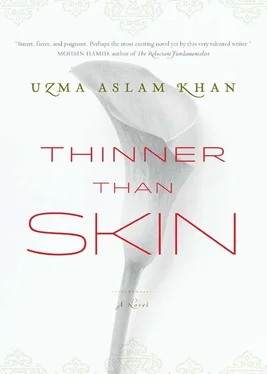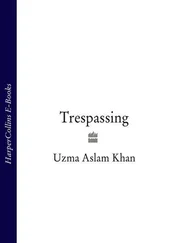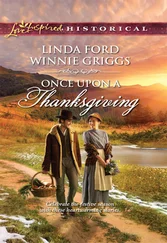It wasn’t till we reached Naran that I finally learned what was bothering her. We were at a shop that sold Kashmiri shawls and fleece blankets and I bought her one of each saying we were going to need them. I could tell she liked the shawl. It had a silky lightness and a reversible pattern, black on one side, white on the other, and on both, cherry-colored embroidery of interlaced vines. But she turned away and began looking at a row of walnut-wood salad bowls. When I draped the shawl around her shoulders she said it made her feel cheap the way I thought I could win her back so easily.
“Why do I have to win you back?”
“You really don’t know, do you?”
“We buy each other gifts all the time. I don’t do it to gain anything. Do you?”
“You didn’t hear me.”
“Did you?”
“Why is Irfan with us?”
Irfan and Wes were outside the shop. We could hear Wes telling Irfan that he’d always wanted to see India “from the other side.” We could hear Irfan’s silence. (What would I say to that?) We could hear Wes add, “This doesn’t even look like Pakistan.”
“Why’s Wes with us?” I turned back to Farhana.
She sighed. “We’re here on work. You know that.”
“I thought we were here because you wanted to return to your country?”
Her neck turned red.
Finally, she said, “I like Irfan and I know you guys are close. But he acts like he’s the boss and you say nothing. He keeps deciding where to stop and for how long.”
Well, that was true. But so was this: she was changing the subject. I took two breaths and decided to state another truth. “Irfan knows these mountains better than anyone I know.”
“We didn’t have to come to Kaghan Valley at all,” she kept on. “We could have gone straight into the Northern Areas, as planned.”
“Wes doesn’t seem to mind.”
“So you like him now?”
“I don’t dislike him.”
She laughed. It was not her usual laugh.
“But you’ll like this valley,” I said at last. “It’s a lush alpine forest and you love lush alpine forests! Trust me, when we leave here you’re going to miss all the green. You won’t get that higher up. And it does have glaciers. And it gives us more time together. You’ll love the cabin, you’ll see. It’s by the river and we’ll have time for the lakes. You’ll love the lakes.”
“Please stop.”
As she left the shop the shawl fell to the floor. Dusting it lovingly, the shopkeeper handed it back to me.
So I left out the most important detail about Karachi.
It was in Karachi that Irfan suggested going to Kaghan first. We were at one of those grand yet rundown old restaurants with long tables meant to seat entire tribes. (The smallest table was for six — who’d eat out with fewer than that?) There were twenty-two of us. Irfan, Farhana, and I sat at one corner. Wes — who, with his lumberjack build and bleach-blond hair with the green stripe had been attracting a lot of attention from the moment he stepped off the plane — was wedged somewhere between my sister’s husband and his mother, who could not stop touching him. She fed him all her seekh kebabs, then her barbecue fish, then everyone else’s.
Farhana spoke with Irfan. I wasn’t really paying attention. I thought he was helping her with her Urdu, and I registered, vaguely, that their talk was drifting to the rise in winter snowfall in the Western Himalayas and the Karakoram, and how this was feeding the glaciers, and perhaps it was that word feeding which sent my mind whirling. I began thinking how odd it was, the way the best-fed man at the table over there was the one being lavished, when three-quarters of the Pakistani population lived under $2 a day. 40 percent had no access to drinking water. 50 percent no sanitation. I could smell the open gutter out on the street. Where was our hospitality when it came to this? It wasn’t that I was upset with my brother-in-law’s mother, or with Wes, and I’m not sure I was even upset. It was simply a profound sense of — whitewash.
Farhana began describing to Irfan the redwood forests of California. I looked at her. She’d not been attracting as much attention as Wes. With her pale complexion, dark thicket of hair, and dark eyes hooded by bushy brows routinely pruned, her German-Pakistani ancestry had resulted in a quite Iranian look, and there were plenty of people in the country with her coloring. She stood out less for her features and more for her accent, and her height, and, of course, her walk, her stomp, swinging both arms with rigor, feet to the side, as if cross-country skiing.
“They like the valley bottoms,” she was saying. “And the floods, though not too often, and they like the fog belt. They like the nonstop drip of dampness. Nadir could never be a redwood.” She turned to me.
I smiled. She leaned very slightly, as if to kiss me, and I pulled back very slightly, reminding her where we were. She got up to use the bathroom.
Irfan absently chewed on the burnt edge of a naan and suggested that Farhana would enjoy the forests of Kaghan Valley. “It’s very lush, she’d like that. And not so out of the way. We have time. There are glaciers there too.”
Then I thought about it. Yes, she would love the valley. It was damp, shadowy, fecund. It was Farhana!
So we decided. And we forgot to tell her till it was time to change buses in Abbottabad. We didn’t take the one to Gilgit in the Northern Areas but the one to the town of Naran in Kaghan Valley, in the Frontier Province. It was just to be a three-day detour before heading north to the landscape of vertical wildernesses I’d described to her once. She sat with Wes on the bus and he must have told her and it must have pained her that he’d been told while she had not — I do remember Irfan explaining it to Wes, but where had she been? The bathroom? Shopping with my sister? I couldn’t remember! — and it was uncharacteristic of her, the way she said nothing till that time in the shop, when she tossed off the shawl.
But then the night before we trekked up to the lake I believed she’d forgiven me, and I believed the same in the morning. I believed it even when I heard her complain to Wes about the detour, as she fed him those cold, tri-colored eggs, moments before we left the cabin. I believed it even on the walk up the glacier, when she turned her back to me, and I had to — how swiftly she and Wes moved on the ice! — I had to hold back — with what ferocity I wanted her just then! — reminding myself that the best reunions are like the best stories, and the best sex, raising questions while delaying answers. Yes. I believed she’d forgiven me, but I did not entirely believe I’d forgiven her. Because though it’s true that I left out the most important detail about Karachi and that I then disclosed it, it is also true that I continue to leave out the most important detail.
Kaghan or no Kaghan, what was she doing here at all?
Sometimes, after Farhana untangled the knots of her braid and tossed a wad of hair in the dustbin, she’d pull me out of bed, to recline at her five-sided bay window in San Francisco. It pitched so far out into the street, she claimed it was the one that caused the city to pass an ordinance limiting the projection of all bay windows. We’d sit there, nestled in glass in a purple house. Even by the city’s standards, the house was spectacular. Slender spiraling columns at the alcove, each with gold rings, like cufflinks on a white and crinkly sleeve. Halfway down the door of unfinished wood ran a tinted oval glass. Mirror mirror she’d giggle, the first few times I kissed her there. The bedroom balcony — with little gold-tipped minarets — was where I left her calla lilies, like an offering to the god of extravagance. Art-glass windowpanes under the roof.
Читать дальше












